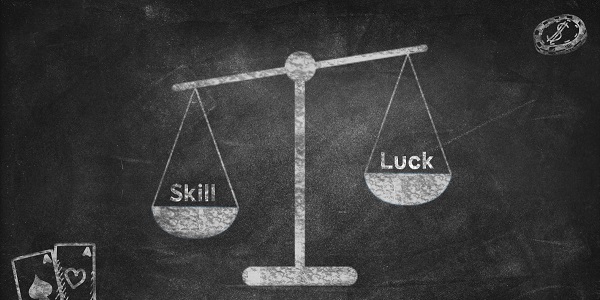Game of Skill vs Game of Chance- How to Differentiate?

From Current Affairs Notes for UPSC » Editorials & In-depths » This topic
IAS EXPRESS Vs UPSC Prelims 2024: 85+ questions reflected
Recently, the Chhattisgarh legislature passed an Act to govern gambling in the state. Of particular significance is its provisions banning online gambling, while excluding online games of skill. This brings back the debate on how India should differentiate games of chance from games of skill.

How are these two different?
What is a Game of Skill?
- A game of skill is one that requires a player to employ his/her skill and strength, physical or mental, to win.
- It doesn’t depend on luck alone.
- The player has to use strategies, experience and develop skill through constant practice.
- The Supreme Court, in Dr K R Lakshmanan case, held that success in a game of skill depends on the player’s:
- Knowledge
- Attention
- Training
- Experience
- Adroitness
- Certain amount of luck too
- For example, the Supreme Court, in Satyanarayana case, held that horse racing and wagering on it were games of skill.
What is a Game of Chance?
- A game of chance is one in which a player emerging victorious is only a matter of luck.
- Here, the player has the same chance of winning the game, irrespective of his/ her skill or experience.
- As these games don’t need any technical knowledge, these are easier to play than games of skill.
- Examples include:
- Lottery
- Roulette
Why is it of significance?
- An operator offering an unlicensed game of chance risks facing penal consequences.
- Meanwhile, the courts have recognized games of skill as a legitimate business activity protected under Article 19(1)(g) of the Indian Constitution.
- While the Indian courts have used these criteria to distinguish between games of skill and those of chance, the lack of objectivity in the criteria is a shortcoming.
- Games’ nature is still being determined on a case-to-case basis, leading to confusions. For instance, there are still confusions about the status of games like poker.
- Most of the courts have classified poker as a game of skill.
- However, the Gujarat High Court classified it as a game of chance.
- This ambiguity is posing difficulties to operators who have invested millions in these games.
- There have been several recent developments on which these differences have bearing:
- Promulgation of the Chhattisgarh Gambling Act 2023 that prohibits online gambling, specifically excluding online games of skill.
- Earlier the High Courts of Madras and Karnataka struck down their respective state laws that attempted to prohibit online games of skill involving money (like gambling games).
What is the way ahead?
- To ensure that games of skill are quantitatively and scientifically differentiated from games of chance, comprehensive legal principles are required.
- Mathematical assessment would help objectively quantify whether a game in question has predominance of skill or chance elements. This will enable an objective conclusion despite differing legal opinions.
- A skill test can be used, with the following criteria:
- Historical data analysis:
- The historical data associated with a game is evaluated to establish the pattern of wins- in terms of frequency and quality- to determine the significance of an individual’s skill in the game.
- When the permutations of the results are more random, there is a high chance of the game being mainly chance-based.
- Skilled simulations:
- Algorithms can be used to simulate the outcomes of a game.
- This could then be evaluated against patterns determined by historical data analysis.
- Live experiment:
- An experimental approach can be adopted by generating different strategies and assigning them to several users to approach the game.
- The success rates can then be compared.
- Historical data analysis:
- This test seeks to show whether a game has enough requirement of skill in its players, so that a skilled player outperforms an unskilled player. It will provide empirical evidence to show whether or not a game has elements of skill in it.
- The games can be labelled with ELO ratings i.e. ratings to indicate the level of skill requirement.
- There are several international entities that work with regulators around the world to evaluate games quantitatively and objectively. Data-driven reports from these expert labs can be used by courts in determining the status of games.
Conclusion:
Given the significant differences in attitudes and laws towards these two categories of games, it is vital to clearly establish the criteria for labelling a particular game as a game of chance or game of skill.
Practice Question for Mains:
How are games of skill different from games of chance? What are the challenges in regulating these games? (250 words)
If you like this post, please share your feedback in the comments section below so that we will upload more posts like this.

